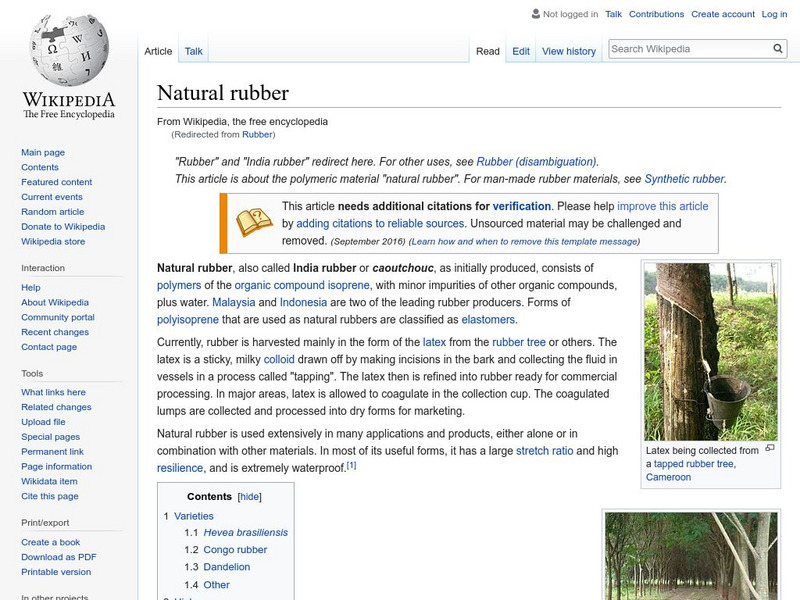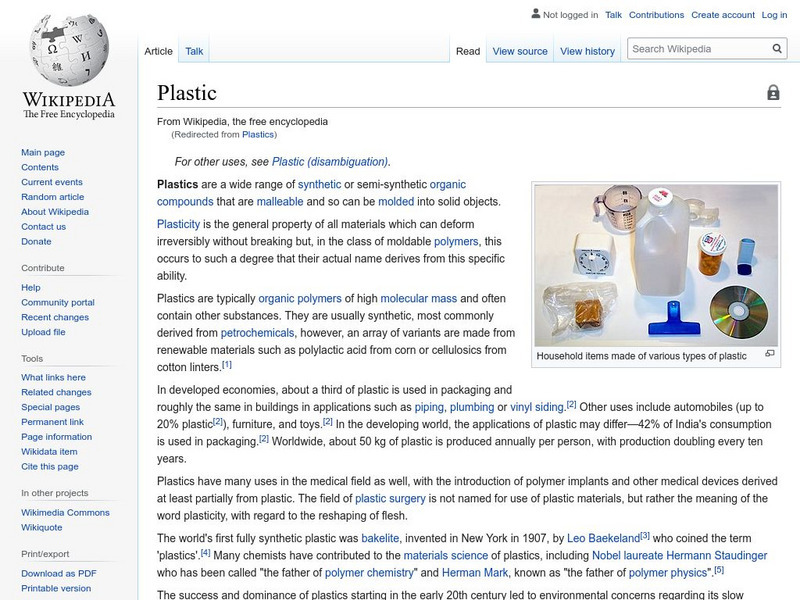National Institute of Open Schooling
Nomenclature and General Principles
Carbon, the base for all organic compounds, exists in nature in its purest form as graphite or diamonds. The 25th lesson in a series of 36 teaches pupils the nomenclature of organic compounds. Learners read about how to use the IUPAC...
American Chemical Society
Man and Materials Through History
From the start of the Industrial Revolution, it only took 147 years for someone to invent plastic. This may seem like a long time, but in the history of inventing or discovering new materials, this is incredibly fast. An informative and...
Other
American Chemistry Council: History of Polymers & Plastics for Teachers
This resource presents a teacher guide that offers information on the history, structure, characteristics, forms, and common uses of plastics and polymers.
Science Struck
Science Struck: Properties and Uses of Polypropylene
Discusses properties, uses, and facts about polypropylene.
Science Struck
Science Struck: Properties of Polystyrene
Explains what polystyrene is and its many different properties and uses.
University of Pennsylvania
University of Pennsylvania: Solid State Chemistry: Describing Crystalline Solids
This site contains in-depth information on crystalline solids. Includes basic concepts, pictures, learning graphs, and useful tools.
Massachusetts Institute of Technology
Mit: Inventor of the Week: Roy J. Plunkett
Read about Roy Plunkett's invention, teflon, one of the best-known and most widely used polymers that was created by accident.
Massachusetts Institute of Technology
Mit: Inventor of the Week: Leo Baekeland
Use this site to learn about how Leo Baekeland invented plastic, and how this simple invention resulted in a "plastic revolution."
Wikimedia
Wikipedia: Rubber
Wikipedia provides detailed information on rubber, a hydrocarbon polymer. Includes information on the composition and uses of rubber.
Wikimedia
Wikipedia: Fuel Cell
A detailed Wikipedia encyclopedia article on fuel cells explains what they are, the controversies in the use of hydrogen as a fuel, and practical problems. There is also a lengthy section on the five generally recognized types of fuel...
Science Struck
Science Struck: Ldpe Plastic
LDPE stands for low-density polyethylene. This resource describes its structure, physical and chemical properties, resistance to various chemicals, advantages and disadvantages, uses, its BPA-free status, and the issue of recycling LDPE...
Wikimedia
Wikipedia: Plastic
Wikipedia offers all of the basic information one would need about the topic of plastic. Includes hyperlinked table of contents for easy site navigation.
Other
Doyle Sailmakers: Fiber Guide
Descriptions of the major fibers used in sail making. A decent introduction to the different fibers.










